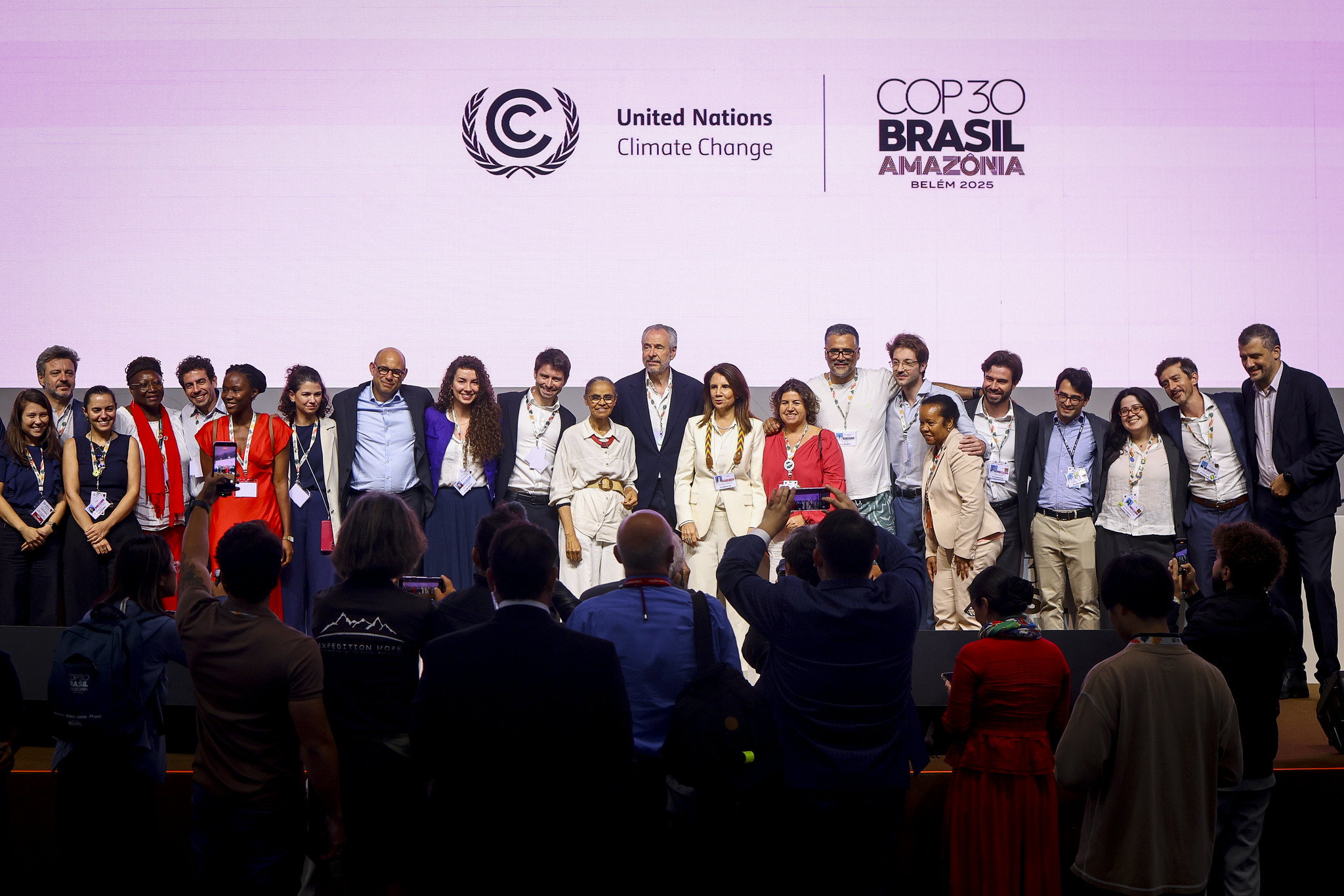COP30: landmark outcomes emerge from negotiations despite unprecedented geopolitical tensions
The conference in Belém consolidates political and technical advances. It projects Brazilian leadership and inaugurates a global mutirão (collective effort) against climate change

At a moment widely recognized as the most geopolitically challenging and fragile for the Paris Agreement since its adoption a decade ago, COP30 approved a robust package of decisions that fulfilled its three core objectives: (i) strengthening multilateralism, (ii) connecting climate multilateralism to people, and (iii) accelerating the implementation of the Paris Agreement.
COP30 successfully balanced forces between North and South, developed and developing countries, energy and nature, technology and people, commitments and implementation, mitigation and adaptation.
Political breakthrough: Brazil elevates the debate on fossil fuels
On the political dimension, Brazil led an unprecedented global debate on the future of fossil fuels. Despite the absence of consensus, with more than 80 countries supporting explicit language and over 80 opposing it, the Brazilian Presidency announced, on its own initiative, processes to develop two key roadmaps:
- Transition to a fossil fuel-free economy in a just, orderly, and equitable manner;
- Forest and Climate Roadmap to halt and reverse deforestation.
Formal advances: strengthening the Paris Agreement and protecting people
The Paris Agreement was strengthened through decisions on emission reduction, climate impact adaptation, and finance, as well as technology and capacity building for developing countries. These decisions reflected ambition gaps revealed by NDCs and a response to the escalating climate urgency.
The formal decisions expanded the rights and inclusion of women, Indigenous Peoples, and Afro-descendant communities, in addition to recognizing the fundamental role of subnational governments in implementing climate solutions. Hosting COP30 in the Amazon region raised global awareness about the link between nature and climate—with initiatives like the TFFF (Tropical Forests Forever Facility) and a heightened focus on oceans.
Turning Point: a global mutirão against climate change
The main formal decision of COP30 issued a historic call for humanity to unite in a global mutirão (collective efforts) against climate change, marking a new chapter for the climate regime. By consensus of almost 200 countries, COP30 reaffirmed the strong commitment to the Paris Agreement and formally endorsed a transition from a phase of over three decades, since 1992, centered on complex negotiations, to a new phase focused on real transformations in economies and societies.
In response to the climate urgency, COP30 adopted a series of measures to accelerate implementation and international cooperation:
1. Launch of a Global Implementation Accelerator: The Accelerator will prioritize actions with the best potential for scale and speed in the climate fight, including for methane emission reduction and carbon removal through nature-based solutions. Concurrently, it will prioritize interventions that can leverage positive tipping points, such as renewables, batteries, reducing the cost of capital, digitalization, and multilateral bank reform, for exponential and cascading transformations. The Accelerator will work synergistically with the Action Agenda, which reached a new level of actor mobilization, resources, processes, and solutions at COP30.
2. Tripling of Adaptation Finance: A landmark to support the most vulnerable populations—those least responsible for climate change but most affected by its impacts.
3. Creation of the Belém Mechanism for Just Global Transition: A new instrument to support countries in ensuring that the transition to sustainable economies is just and inclusive.
4. Adoption of Voluntary Indicators to measure progress in building resilience, within the framework of the Global Goal on Adaptation.
5. Launch of the Technology Implementation Program (TIP), with a timeline and components to strengthen the implementation of technology priorities in developing countries.
6. Adoption of the new Gender and Climate Action Plan, with activities to increase the influence of women in combating climate change.
7. Launch of a sequence of dialogues on international trade and climate.
8. Launch of a two-year work program on climate finance, focusing on the predictability of public resources from developed to developing countries.
9. Recognition of the importance of the role of cities, states, and municipalities in climate action.
COP30 concludes with clear manifestations of renewed political commitment and the strengthening of climate multilateralism. The decisions adopted in Belém offer concrete instruments to intensify global action, reinforce the centrality of climate justice, and reaffirm the conviction that only through international cooperation will it be possible to ensure a safe, resilient, and sustainable future for generations to come.
English version: Trad. Barbara Menezes.
Proofreading by Enrique Villamil.
